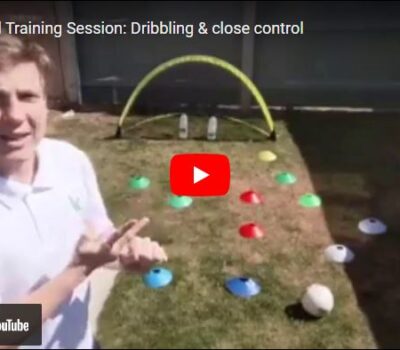


Our team sorts through all blog submissions to place them in the categories they fit the most - meaning it's never been simpler to gain advice and new knowledge for topics most important for you. This is why we have created this straight-forward guide to help you navigate our system.


And there you have it! Now your collection of blogs are catered to your chosen topics and are ready for you to explore. Plus, if you frequently return to the same categories you can bookmark your current URL and we will save your choices on return. Happy Reading!
Whilst working internationally, Cate was lucky enough to encounter the brilliance that it Service Learning. She explains why it would be perfect for U.K. learners…

Service learning is at the core of the IBO programs of study.
I cannot understand why this isn’t part of every school curriculum in every country at every age.
Service is about learning to give back. It is about recognising needs in the community, passions within our learners and matching these up.
Firstly we need to understand the word community. When it comes to Service, “community” can refer to our school, our town, city, county, nation, continent, or globally. It is about coming together to make a change, a difference.
There are 4 ways to practice service learning:
Advocacy
Young people can campaign, hold marches, write to MPs, set up petitions and raise awareness of issues in their chosen community. This could be campaigning for safer roads past their school or even tackling global environmental issues.
Indirect Service
Raising money and support for specific charities that provide services, indirect service is probably the easiest form of service to start with. Most schools manage an element of this when they have Children in Need day or Red Nose Day.
Research
Rather more complicated than other forms of service, the research aspect is about innovation. It’s about identifying a need or issue that hasn’t been addressed yet and using research to come up with potential solutions. Examples could be: What to do with empty storefronts in town, how to tackle antisocial behaviour in the park, or how to encourage back certain types of wildlife to the area.
Action
The most exciting part of Service Learning is often the opportunity to work, hands-on, on a project that is making a difference. It may be an existing project or one the learners design themselves. Examples are: working voluntarily at the local food bank, setting up a reading group to go to a local care home once a week, building a nature area and Eco pond.
These are just ideas! The potential is endless. I have seen a group of boys in year 9 go after school to teach football skills at the local primary. Girls who decided that there were too many stray cats going hungry so they created a TNR (trap, neuter, release) project and feeding schedule and got sponsored by the local supermarket. I have seen service learners create bike designs that were used by Olympic teams. I have watched an entire sewage system redesigned and rejuvenated on the basis of research compiled from a Service project. Learners feel empowered, develop empathy, discover skills and passion, embrace challenge and teamwork and invest in their community.
This hands-on learning, where the impact can be seen in real life, is seen in some schools, in some classrooms. But just imagine if every learner engaged in giving back. Imagine the impact.
This is the vibrant, useful, relevant curriculum that I long for in our schools. Positive, forward-thinking, innovative, change-making education.

The author

Read more

Read more

Read more

Read more

Read more

Read more

Read more

Read more


Are you looking for solutions? Let us help fund them! Nexus Education is a community of over 11,000 schools that come together to share best practise, ideas and CPD via online channels and free to attend events. Nexus also offers funding to all school groups in the UK via nexus-education.com


Established in 2011, One Education is a company at the heart of the education world, supporting over 600 schools and academies. Our unique appeal as a provider is in the breadth and synergy of the services we offer, supporting school leaders, teachers and support staff to achieve the best possible outcomes for their pupils and staff.

School Space is a social enterprise that has empowered schools for over 12 years through their profitable and hassle-free lettings services. So far, they’ve generated over £5 million in revenue for education, helping to connect over 200 schools with their local communities.





